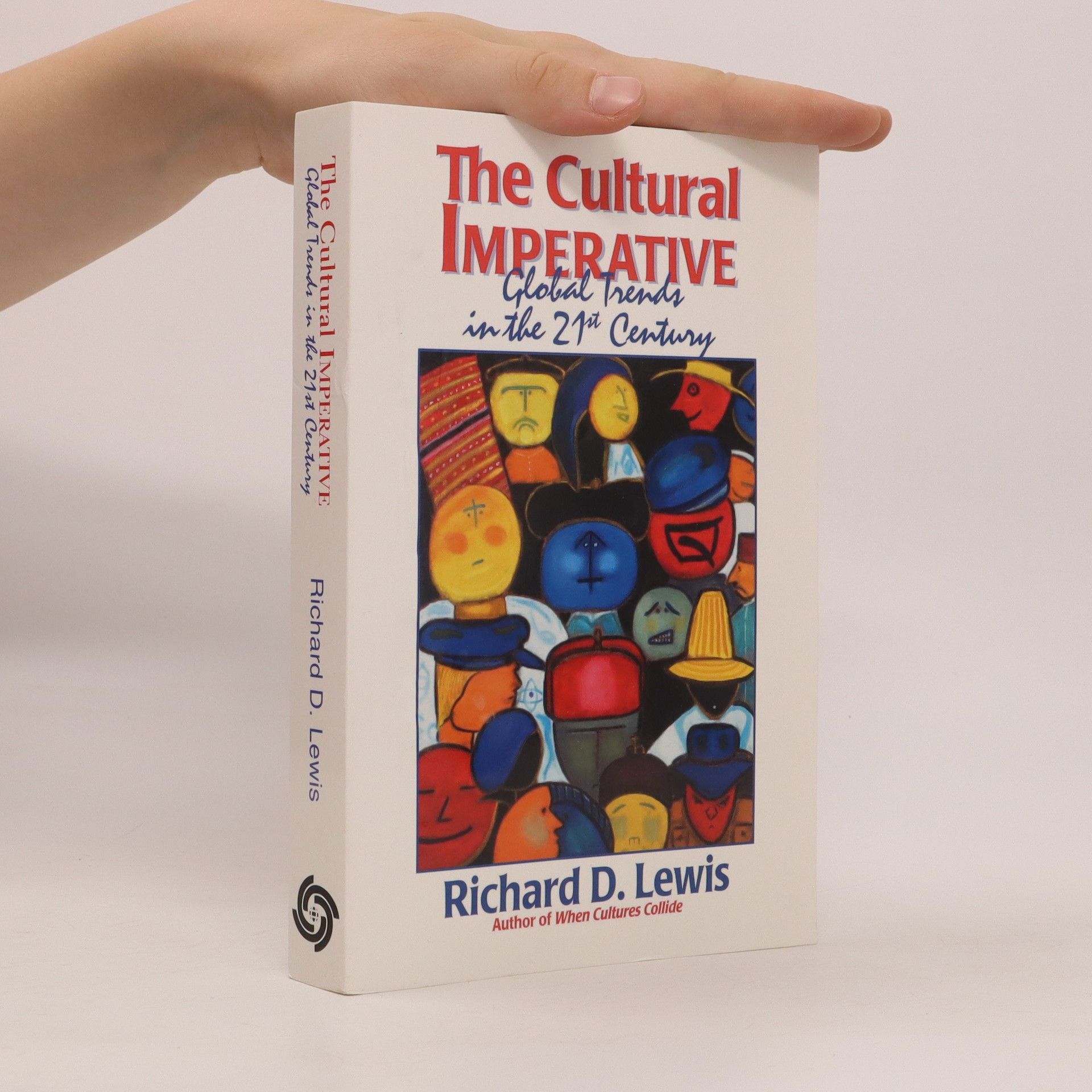Close Encounters of a Cultural Kind
- 288bladzijden
- 11 uur lezen
The world is a varied place, and communication matters. This book will show you what happens when cultures collide and people do business.
Richard Lewis wordt erkend als een van de meest vooraanstaande Britse taalkundigen en auteur van diverse boeken over onderwijskundige onderwerpen. Zijn werk duikt in de complexiteit van interculturele communicatie en begrip, zoals geïllustreerd door een zeer succesvol boek dat meer dan 500.000 exemplaren heeft verkocht. Lewis' uitgebreide ervaring in het bevorderen van internationale betrekkingen en zijn wereldwijde lezingen vestigen hem als een belangrijke stem in het bevorderen van mondiaal begrip.






The world is a varied place, and communication matters. This book will show you what happens when cultures collide and people do business.
Will the tidal wave of globalization lead us to a bland and uniform cultural landscape dominated by a unified cultural perspective? Will cultural imperialism triumph in the twenty-first century? Or will culture, which drives human behavior through religion, language, geography and history, maintain its influence on the human consciousness? In The Cultural Imperative, Global Trends in the Twenty-first Century, Richard D Lewis explores these questions and proposes his thesis in this sweeping new book that examines the forces that keep us from taking off our cultural spectacles and explains how cultural traits are to deeply embedded to be homogenized, as predicted by so many others.
"An invaluable tool to help in planning practical strategies to work successfully across increasingly diverse business cultures. Riveting and thoroughly researched." - Daily Telegraph A major new edition of the classic work that revolutionized the way business is conducted across cultures and around the globe. The fourth edition provides leaders and managers with practical strategies to embrace differences and successfully work across diverse business cultures. Capturing the rising influence and the seismic changes throughout many regions of the world, cross-cultural expert and international businessman Richard Lewis has significantly broadened the scope of his seminal work on global business and communication. Thoroughly updated to include the latest political events and cultural changes, as well as covering nine new countries to complete Europe, broadening the scope of the book. Building on his LMR model, Lewis gives leaders and managers practical strategies to embrace differences and work successfully across increasingly diverse business cultures.
How did Samsung Electronics become the world's largest Consumer electronics company in less than 20 years, unseating dominant Sony Corporation in the process? What pivotal role did the national heritage of both companies play in this? How did Toyota create a sustainable competitive advantage for almost 25 years, by adapting a global business philosophy deeply rooted in Japanese culture? How did the Finnish roots of Nokia and the American roots of GM first help both companies, to only later derail their success?We live in a rapidly globalizing world. But the world is not flat - we are not all the same - the world is still round and cultural differences play an increasingly important role in differentiating companies. You can copy processes, but not the heart and the soul of a company. Cultural Drivers explores how management, boards and investors can identify the enabling and derailing cultural dynamics that may create sustainable differentiation.
Finland, Cultural Lone Wolf is the story of an accomplished nation and her extraordinary people. By pursuing a 'Lone Wolf' policy, Finland raised itself from a struggling, war-battered state to one of the most developed countries in the world over the course of only fifty years. The exponential rise of Nokia from tires and timbers to leading the world's telecommunication industry is indicative of the Finns and their business style. These remarkable people speak a language unique in its origins and have kept their cultural identity intact despite the influences of powerful neighbors, Sweden and Russia.Uniquely qualified to write about Finland, best-selling author Richard Lewis traces the fascinating Finnish origins, as well as her history, geography, values and culture. His extensive experience with Finnish business provides him with keen insight on leadership style, negotiation strategies and the uniquely Finnish suomi-kuva, or Finland image. Lewis shines when describing Finnish humor, complete with laugh-out-loud jokes and stories. Finland, Cultural Lone Wolf shows both nation and writer at their best.
This book provides the reader with a diagrammatic introduction to cross-cultural communication across 28 different nationalities.
A collection of international jokes and humorous anecdotes.